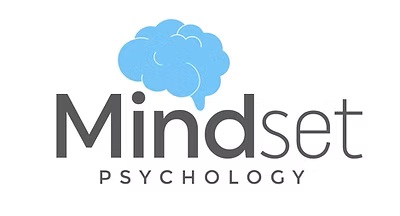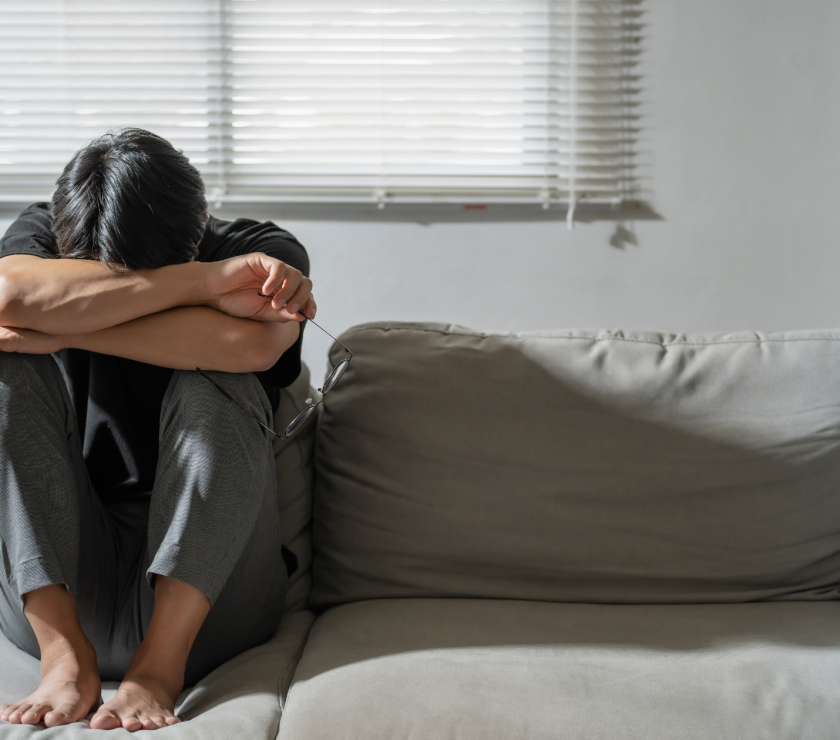Introduction: When Anxiety Becomes a Daily Struggle
You know the feeling, the one that keeps you awake at night, rehashing all your earlier conversations and rethinking all the decisions you made. Your chest feels tight for no apparent reason, and you are drowning in feelings of fear, dread, and uneasiness. You tell yourself you’re just stressed, but these racing thoughts, tight chests, or sleepless nights could be from your anxiety. But don’t worry, it’s not as horrifying as you may think.
Anxiety is a natural occurrence, normal when in stressful situations such as speaking in public, taking a test, or dealing with financial issues. It might be time to take a closer look when your anxiety starts to interfere with your daily life, including your sleep schedules, ability to focus, and your relationships. The good news is: therapy works. It’s not about “fixing” you; it’s about helping you better understand your mind and regain control. For many people, therapy offers the clarity and calm they’ve been searching for.
Understanding Anxiety: More Than Just Stress
Understandably, many may confuse anxiety with stress because the symptoms are very similar. When one is stressed, they are in a state of worry caused by a difficult situation. However, clinical anxiety doesn’t work that way; symptoms show up unexpectedly and tend not to go away even when the problem has passed. It can affect many aspects of your life, physically (like muscle tension or stomach problems), emotionally (constant worrying), and behaviorally (avoidance).
It’s not something that can be simplified to “being nervous” when it can directly shape how you live your day-to-day life. That is why it’s important to understand the different types of anxiety disorders and how they may affect you.
● Generalized Anxiety Disorder (GAD): Persistent and excessive worry about several different things. Those who struggle with GAD may anticipate disaster and be overly concerned about issues related to money, health, family, or work.
● Obsessive Compulsive Disorder (OCD): Disturbing, intrusive, and unwanted thoughts followed by attempts to ignore or suppress such thoughts and urges through compulsive/repetitive behaviors.
● Social Anxiety Disorder: Intense fear of being judged, thought of negatively, or socially rejected. People with social anxiety spend time worrying about whether they seem visibly anxious, like stumbling over words, or being seen as dumb, awkward, or boring.
Due to this stated on constant worry, they often opt out of social situations, and when a situation cannot be avoided, they experience significant anxiety and distress.
● Panic Disorder: Sudden, recurring panic attacks that include physical symptoms like rapid heartbeat or shortness of breath
● Phobias: Strong, irrational fears of a specific object, place, or situation. Those with a specific phobia work hard to avoid these common places, situations, or objects even when they know there’s no immediate threat or danger. The fear often may not make any sense, but internally, they feel completely powerless and have no control to stop it.
How Therapy Helps You Reclaim Contro
For those struggling with any type of anxiety, it’s important to know there is help available, specifically therapy. One of the most effective treatments for anxiety is Cognitive Behavioral Therapy (CBT). The American Psychological Association states that multiple research studies have shown how CBT significantly improves functioning and quality of life. Through this method, individuals learn to recognize and change unhealthy thinking patterns to more balanced ones.
Another treatment is Mindfulness-Based Stress Reduction (MBSR), which teaches you how to stay present in the moment instead of spiraling about the “what ifs.”. This is done through mindfulness meditation techniques involving simple stretches and postures.
Therapy isn’t one-size-fits-all, but across approaches, it helps you:
● Identifying triggers that exacerbate your anxiety
● Learn ways to cope, like breathing or grounding techniques
● Reread in a manner that provokes your fear
● Learn healthy coping skills
Over time, consistent therapy can lead to fewer symptoms, better coping during stressful situations, and even stronger relationships as you communicate more clearly and feel more in control.
Take the Next Step Toward Healing
You don’t have to navigate life’s challenges alone. Our Long Island therapists provide a safe, supportive space for you to heal and grow.
Why Location Matters: Accessing Therapy in Soho
Getting to therapy should never feel like another source of stress. That’s why choosing a therapist in a convenient location, like Soho, can make a big difference. Whether you’re grabbing a session between classes, work, or errands, easy access can keep you consistent. Having a therapist close at hand means you’re tapping into a community that is invested in mental health and self-care.
And, most therapists in the area offer online sessions, so you can choose what works for you. Finding a therapist in the area means you’re tapping into a community that values mental health and self-care. Plus, many local therapists offer virtual sessions, so you can choose what works best for your lifestyle.
What To Look For In An Anxiety Therapist
Therapy is an extremely personal matter, which is why it’s important to find the right therapist for you. When searching for a therapist for your anxiety, look for someone who:
● Is licensed and has specific experience treating anxiety
● Uses evidence-based approaches like CBT or mindfulness
● Makes you feel heard and supported, not judged
During a consultation, don’t be afraid to ask:
● “What’s your experience treating people with anxiety?”
● “What does a typical session look like?”
● “How will we track my progress?”
You deserve a therapist who feels like a teammate, someone who meets you where you are and helps you move forward with compassion and skill.
Discover Calm With Mindset Psychology In Soho
If you’ve been struggling with anxiety, therapy can help you figure out what’s going on and move forward with more confidence. At Mindset Psychology, we help our patients take control of their anxiety by utilizing evidence-based treatments.
We assess each patient’s needs and create a treatment plan that incorporates elements of Cognitive Behavioral Therapy (CBT), Dialectical Behavior Therapy (DBT), Acceptance and Commitment Therapy (ACT), mindfulness, and psychodynamic therapy. If you’re looking for a trusted Psychologist, we invite you to get in touch.
Visit Mindset Psychology to schedule a confidential consultation today, and let’s take that step forward together. Whether you’re in the heart of Soho or logging in from your couch, support is out there—and you’re not alone.
● Anxiety and Depression Association of America. (n.d.). Anxiety disorders: Facts & statistics. https://adaa.org/understanding-anxiety/facts-statistics
● American Psychological Association. (2017). What is cognitive behavioral therapy? https://www.apa.org/ptsd-guideline/patients-and-families/cognitive-behavioralAmerican Psychological Association
● Niazi AK, Niazi SK. Mindfulness-based stress reduction: a non-pharmacological approach for chronic illnesses. N Am J Med Sci. 2011 Jan;3(1):20-3. doi: 10.4297/najms.2011.320. PMID: 22540058; PMCID: PMC3336928.



